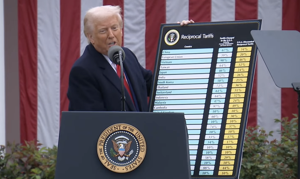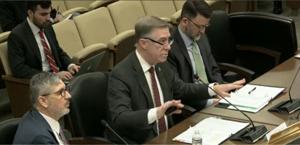(The Center Square) — California has lost 173,000 fully private sector jobs since January 2023, offset by a gain of 181,100 largely part-time government and government-supported jobs.
Thirty-eight percent of these new government and government-supported jobs are from elderly or disabled individuals using state funds to pay household members and others minimum wage for part-time care and assistance.
The report also found that while hourly wages are up, average hours worked are down, suggesting employers are cutting hours to reduce labor costs, such as those imposed by the state’s sector-based minimum wages.
According to the new report from the California Center for Jobs and the Economy, a project of the California Business Roundtable pro-business association, “California’s job growth has been dominated by government and government dependent jobs in Healthcare & Social Assistance.”
CCJE says of the 181,100 new taxpayer-funded jobs, 124,800 were in health care and social assistance, and that 55% of those were from the government’s household care program.
“Using the unadjusted series, Social Assistance — composed primarily of minimum wage, part-time, government paid jobs in In-Home & Supportive Services (IHSS) — was responsible for 55% of the Healthcare & Social Assistance jobs growth in California — and 2/3 of total net jobs growth. This source comprised only 4% to 16% in the other states.”
The report said in the private sector, essentially only “green” energy and transportation jobs experienced any growth.
“Trade related jobs in Transportation, Trade & Utilities have been the one bright spot in the state’s recovery progress, but as indicated in the Texas numbers, California’s lead in this area has been under increasing competition from other regions,” continued the report. “To put it more directly, other than in Trade, California has not grown jobs during the past 4 years of recovery; it has bought them with public funds.”
Without state and federal funding and regulations mandating labor and capital-intensive replacement of energy and transportation infrastructure, it’s thus likely every single sector in the private industry in California would have shrunk over the past two years.
The report also said the low quality of the new “jobs” could create issues for the state over time.
“California has not expanded its tax base; it has used that tax base to cover its competitive weakness for private sector jobs,” wrote the CCJE. “And the jobs California has bought are not the ‘good-paying’ jobs promised in the state’s economic development goals, but are predominantly minimum wage, part-time and limited term.”
Last year, the state-funded Legislative Analyst’s Office reported the state’s fully private sector employment started contracting in 2022 and that all job growth had been through government.
Now, the LAO has a new report on just how much IHSS — which largely facilitates elderly and disabled individuals paying household members $21.65 per hour for the time they spend together — will cost the state in the coming 2025-2026 fiscal year.
California Gov. Gavin Newsom has proposed a $28.5 billion budget for IHSS this coming year, due to an estimated 7% increase in caseload and 2.9% increase in labor costs.
The LAO explained IHSS recipients generally can receive up to 283 hours of paid assistance per month “with tasks such as bathing, dressing, housework and meal preparation,” and that county workers conduct assessments to approve service hours.
“In most cases, the recipient is responsible for hiring and supervising a paid IHSS provider — oftentimes a family member or relative,” wrote the LAO. “The average number of service hours that will be provided to an estimated 771,650 IHSS recipients is projected to be 123.7 hours per month in 2025-26.”
The LAO noted most costs for the program are shared with the federal government, and as a Medicaid program, receives 50% reimbursement from federal taxpayers, leaving the state and county governments with the rest of the tab, except in the case of certain individuals with federal reimbursement rates of up to 90%.
The LAO warned “caseloads are growing at an increasing rate.”
The office noted program growth has risen since all illegal immigrants were made eligible for Medi-Cal and the state ended asset means-testing for the program, allowing technically low-income but asset-rich individuals to qualify for taxpayer-funded healthcare, nursing and other benefits.
The LAO also said demographic changes are further increasing IHSS spending.
The state expects a quarter of Californians to be 60 or older by 2030, which, combined with the out-migration of net taxpayers and in-migration of net beneficiaries, could further complicate the state’s deteriorating budget.
Even with current spending levels, the LAO says the state will face a $20 billion deficit for 2026 and that will continue to rise to $30 billion by the end of the decade.


















































